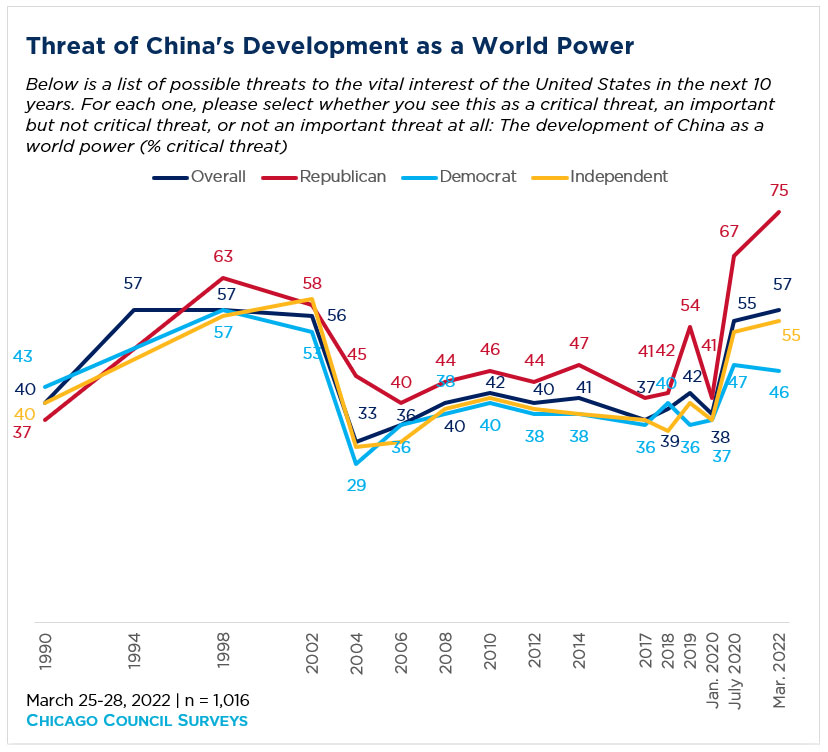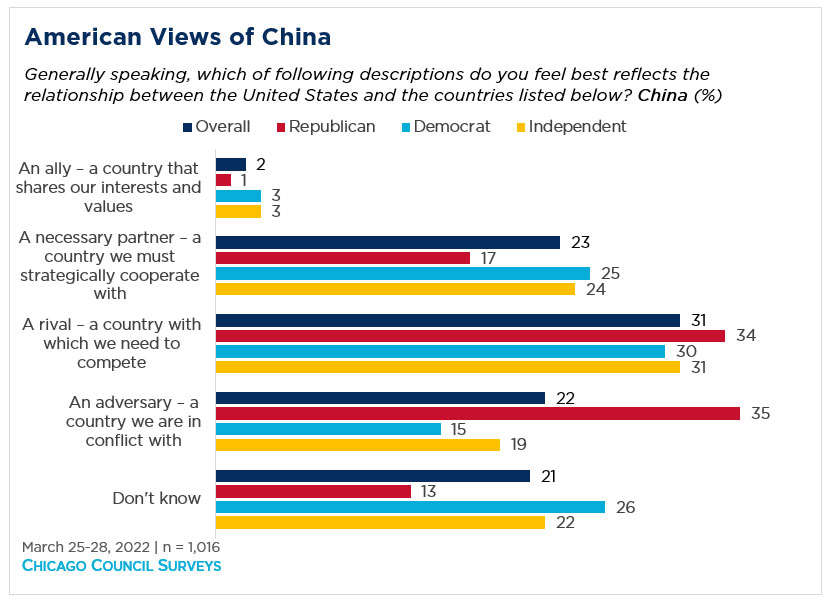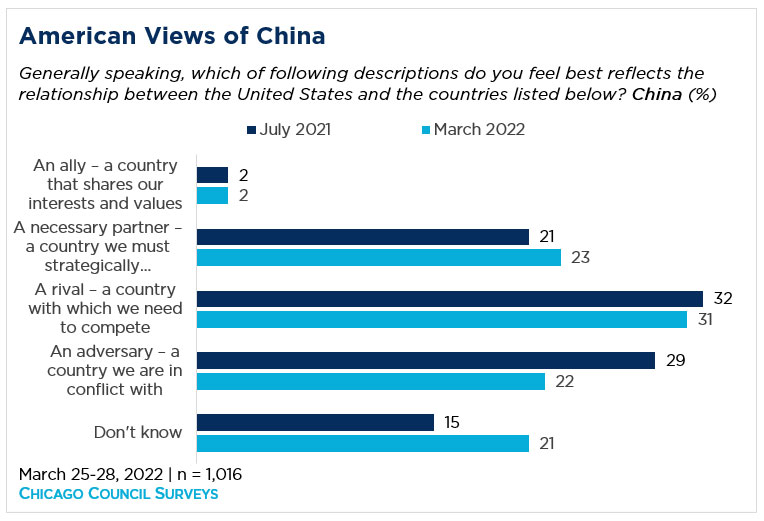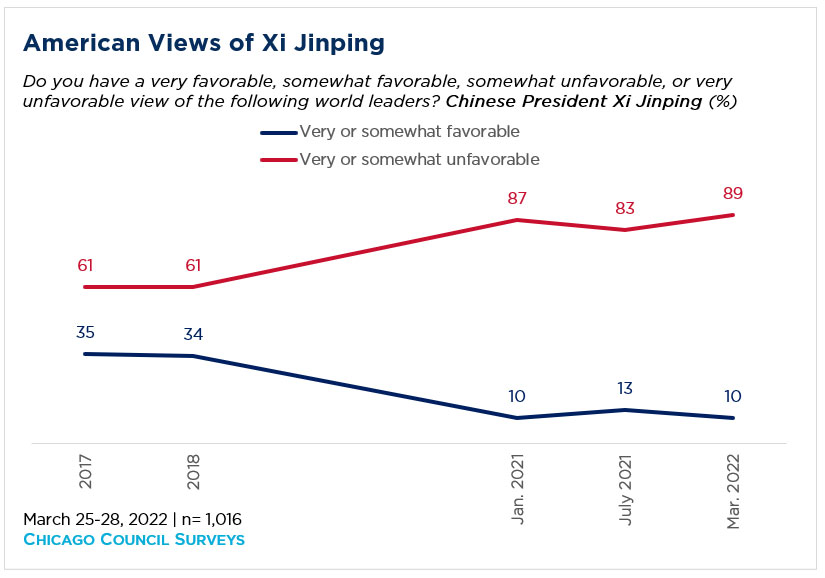Partisan Divides on China Continue to Grow

Republicans are more concerned about China's rise than ever before.
Russia’s invasion of Ukraine in February has focused the world’s attention on Europe. But that shift in global attention has not softened American views on China. For many Americans—Republicans especially—China remains a critical threat to US interests and a rival or adversary for the United States internationally.
Republicans Far More Likely to View China's Rise as a Critical Threat to the United States
According to a March 25-28, 2022 survey by the Council, a majority of Americans (57%) say that the development of China as a world power represents a critical threat to US vital interests. This includes three in four Republicans (75%), and a majority of Independents (55%), but only a plurality of Democrats (46%).
For Republicans, this is also an all-time high in Chicago Council Survey data and a sharp increase from 2018, when just 42 percent of Republicans saw China’s rise as a critical threat to US interests. Democrats, by contrast, are just slightly more concerned about China’s rise today than they were from 2002 through 2019. As a result of these divergent trends in concern, this is also the greatest partisan divide on this question yet seen in the Council’s polling. At 29 percentage points, it is even wider than the 20-point split seen in the 2020 Chicago Council Survey.

Americans Divided over the US-China Relationship
Republicans and Democrats are also somewhat divided when it comes to views of the US-China relationship, though Republicans are more likely to view the US-China relationship in competitive terms, matching their general support for more restrictive policies vis-à-vis China.
Republicans (35%) are more likely than Democrats (15%) to say that China is an adversary for the United States, meaning a country the United States is in conflict with. And similar proportions of both Republicans (34%) and Democrats (30%) view China as a rival, a country with which the United States needs to compete.
Democrats, by contrast, are somewhat more likely to view China as a necessary partner that the United States must strategically cooperate with (25%, compared to 17% of Republicans). And Democrats (26%) are twice as likely as Republicans (13%) to say they don’t know how to characterize the US-China relationship.

Interestingly, though public concerns about the rise of China have grown over the past year, American views of the US-China relationship have only changed slightly since the summer of 2021. Today, fewer see China as an adversary for the United States (22%, down from 29%) and more say they do not know how to characterize the US-China relationship (21%, up from 15%).

Majority View Xi Jinping Very Unfavorably
American views of China’s leader, however, remain deeply negative. Only ten percent of Americans overall say they have a favorable view of Xi Jinping, while 89 percent say their views are either somewhat unfavorable (38%) or very unfavorable (51%). That’s consistent across the political spectrum, with nine in 10 Republicans (92%), Democrats (88%), and Independents (87%) saying they have an unfavorable view of Xi. Views of Xi were somewhat less negative through 2018, with a third of Americans reporting a favorable view of China’s leader. Since early 2021, however, American opinion has been nearly uniformly negative.



 Lester Crown Center on US Foreign Policy
Lester Crown Center on US Foreign Policy
Chicago Council Survey data reveals growing concern across party lines about China's economic and military power.
 Lester Crown Center on US Foreign Policy
Lester Crown Center on US Foreign Policy
While the Biden administration seems to understand where Americans stand on China and domestic renewal to support global competitiveness, the data disproves their assumptions that Americans are skeptical about trade and weary of US global engagement and leadership.
 Lester Crown Center on US Foreign Policy
Lester Crown Center on US Foreign Policy
A March 2021 survey finds Americans see US priorities in Asia to be less about limiting the expansion of China and more about economic growth and strengthening democracy.